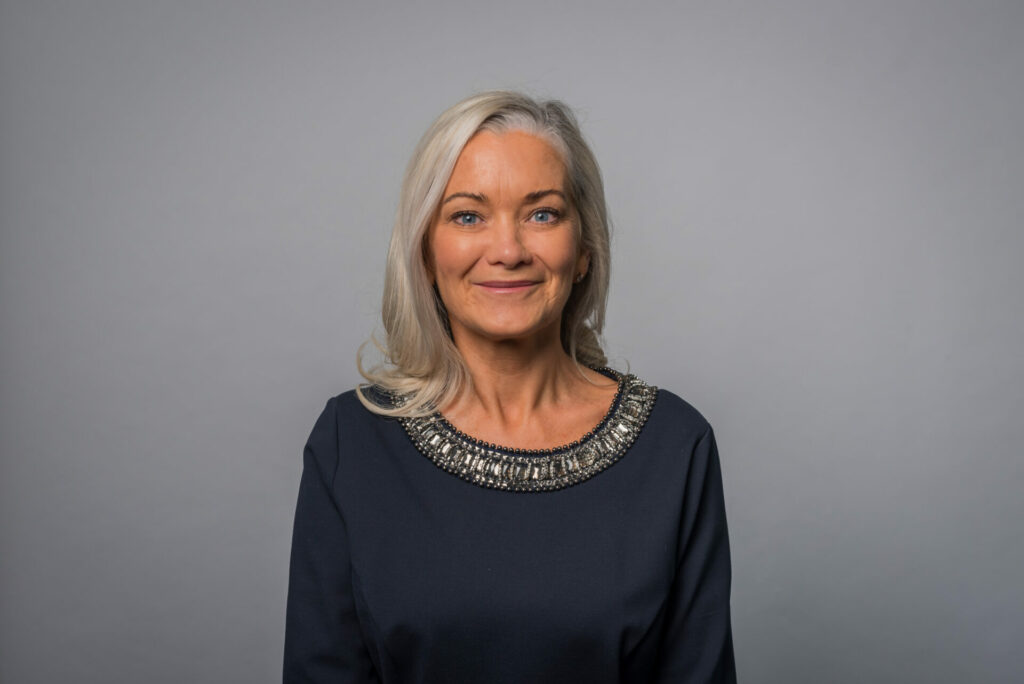Inflation hit 10.1% in the 12 months to July, representing a new 40-year high.
As the cost of living crisis deepens the Consumer Prices Index (CPI) hit double digits, up from 9.4% in June, and reaching the highest level seen since the 1980’s, according to the Office for National Statistics (ONS).
The last time the CPI was in double digits was February 1982 when it reached 10.2%.
The main factor behind the rise in inflation was higher food prices, which rose at an annual rate of 12.7% in July, up from 9.8% in June.
Economists had been expecting inflation to reach 9 .8% in July while the Bank of England (BoE) has warned that inflation could hit 13% in October.
The central bank is not expecting inflation to go back down to the target of 2% for about two years.
Paul McGerrigan, CEO at FinTech brokerage Loan.co.uk, said: “There’s a lot going on. At 10.1%, inflation has increased and remains stubbornly high with peak forecasts not yet reached, employees shoulder a record real pay decrease of three per cent in real terms and strike action is increasing month-on-month.
“Oil prices have dropped to a six-month low, yet we are not seeing the full benefit at the pumps. Why? Solutions to the continued energy crisis need to be found before winter hits.
“It’s a time of flux. What’s blindingly obvious is the leadership election needs to be closed out fast. We need stability and decisiveness at the helm of UK Plc.
“Until the conflict in Ukraine is definitively on its way to resolution, and stability returns to the flow of materials around the globe, we are in for a further tough ride and there are tough decisions to be made by the government and by many millions of households across the UK.”
Further reaction
Rob Peters, director of Altrincham-based Simple Fast Mortgage:
“Savers are not really seeing the benefit of increased interest rates filter through yet but savvy rate hunters will find some providers offering higher than average rates.
“Investors may need to review their holdings to ensure they continue meet their objectives and risk profile. Now that the economy and wider markets appear to be entering a new cycle, there could be shifts in growth and/or income opportunities.
“Borrowers will be the worst hit. While savers can choose to save, and investors can choose to invest, many borrowers have less of a choice about holding debt.
“Everyone should be going through a budget sheet exercise to make sure they are aware of their income and outgoings and can make the necessary adjustments.
“Those with revolving debt such as credit cards and overdrafts, which are more susceptible to rises in costs, may want to consider reducing exposure in this area, if possible.”
Jonathan Burridge, founding adviser at hybrid mortgage adviser, We Are Money:
“From a mortgage advice point of view, I would recommend clients to act as early as possible if their rate is coming to an end.
“There is a view that we have seen all the base rate movements for a while, but the market is uncertain and there is still plenty of risk of further rises.
“With more and more lenders providing offers valid for six months on remortgages, it is possible to start planning seven to eight months ahead of the approaching end date of an existing deal. Look at your unsecured debts that are on variable rates, like credit cards and overdrafts.
“It could be a good time to consider repaying these from savings or by consolidating into one new fixed rate loan. If costs are starting to bite, can you change some of your existing contracts, extending the term or moving to a fixed rate that might reduce your costs or prevent them from rising.”
Lewis Shaw, founder of Mansfield-based Shaw Financial Services:
“Anyone taking out a new mortgage needs to establish what future costs might look like to avoid getting themselves into financial hardship.
“If you already have a mortgage, it’s about acting sooner rather than later and possibly extending the term of your mortgage to free up more disposable income if you’re already stretched.
“Anyone looking to increase the term of their mortgage should be aware that you’ll likely end up paying more in interest over the term, but that is preferable to not making ends meet and getting into financial difficulty.
“Finally, remember that while inflation is biting us at the moment, the value of your debt is shrinking as long as your wages are going up relative to the rate of inflation. So maybe it’s time to ask for that pay rise.”

Kay Westgarth, head of sales, Standard Life Home Finance:
“It’s clear that the cost-of-living crisis is squeezing household finances – whether you are a homeowner or someone who is keen to take the first step on the property ladder.
“That said, in a flashpoint where rising inflation and record energy prices are affecting disposable incomes, it’s not surprising that we are seeing people postponing their property-owning dreams.
“While the property market has remained resilient and the long-term picture looks positive, growth may well slow in the coming months.
“Advisers must take the opportunity to provide some reassurance to older clients during these complex economic times – whether they are concerned about their own financial security or that of their families. Parents and grandparents have always been keen to support the younger generation but with the cost-of-living squeeze making it harder to save, they may well be the best hope for some who are keen to buy their first home.
“However, older clients must themselves be financially sound before considering gifting money to a friend or family member, and so the role of the adviser will remain essential as more people seek new solutions to the widening intergenerational wealth gap.”
Simon Webb, managing director – capital markets and finance at LiveMore:
“With inflation rising to above 10% earlier than expected it puts even more pressure on the Bank of England to raise the base rate and it may even be another 0.5% increase next month. This brings into sharper context why borrowers should opt for long term fixed rate mortgages so they can beat inflation and be certain their monthly payments won’t rise for a fixed period of time.”
David Robinson, chartered wealth manager at London-based Wildcat Law:
“Savers need to beware the false safety of cash deposits, as inflation will erode the real value of money held in them.
“If you have cash savings and debt then you should give serious thought to paying off the debt now. The days of cheap money from debt are over. If you do not need to access your cash anytime soon then consider investing.
“Markets may be set for difficult times, but a well balanced portfolio will be the best way to ride out the coming storm. History shows that equity markets do recover well and offer the best form of protection longer term against inflation. To quote the old adage, it is time in the market, not timing the market.”
Fanny Snaith, a Cheltenham-based certified money coach:
“Even though inflation is way higher than the interest rates being offered to savers, people must have liquid cash, or a Peace of Mind fund, available to them should they need it. It’s a bitter pill to swallow knowing your money is being eroded in real terms but emergency funds in the current climate are essential.
“Investors should keep regularly investing, as long as they can afford it. Investments that are down currently may well be a great sale item to take advantage of. Borrowers need to stress-test their borrowing before they commit. Add 4% on top of the rate offered and ask yourself if you can afford that? If not, think very carefully about committing.”
Adrian Kidd, chartered wealth manager at Aylesbury-based EQ Financial Planning:
“Savers need to be proactive in getting their money working as best they can. This means not just relying on the local branch for savings accounts, it means using the internet to obtain the best savings account rates possible.
“If you are a borrower, make sure you are not over-stretching and if you have savings, pay back high-interest rate debt first. If your mortgage rate is looking to be more than 3% then repaying some debt may be a good thing.
“I would also not suggest fixing interest rates for longer than two years as rates will need to come down at some point, too. Investors should stay patient and add capital if they can when markets dip.
As we have seen in July, markets can rebound aggressively so staying invested will reward you. Remember what you’ve invested for and that it is time in the markets rather than timing them that rewards you better than cash accounts will.”
Scott Gallacher, chartered financial planner at Leicestershire-based independent financial advisers, Rowley Turton:
“Despite the recent rate rises, because of higher inflation, savers are arguably in a worse position than they were a couple of years ago. This is because ‘real’ savings rates are even lower.
“That said, the higher rates do at least make shopping around worthwhile. Previously, when rates were at their lowest, you might only be missing out on 1% per annum by sticking with your current bank.
“However, now you could be missing out on up to 3.5% a year by not moving your account. For investors, it’s generally a case of sitting tight. However, they might want to check their exposure to the long-term debt markets, as these are likely to be the most affected by higher inflation and rising interest rates.
“Meanwhile, borrowers might want to look at locking into longer-term rates to protect them from rising rates. Also, we might be returning to the days of the 70s and 80s when house buyers were encouraged to borrow the maximum they could. This was because high wage rises and high inflation would erode the value of that debt, and the mortgage payments, incredibly quickly.”

Conor Murphy, CEO and Founder, Smartr365 and Capricorn Financial Consultancy:
“Whilst demand continues to outweigh supply, signs such as this indicate that property prices are beginning to stabilise.
“Nevertheless, economic uncertainty remains at the forefront of the minds of buyers and owners alike.
“On the one hand, prospective buyers may choose to ride out this period of volatility before securing a property later down the line. On the other, the cost of living crisis may cause homeowners to re-evaluate their current mortgage rates and secure a more cost-efficient deal.”
“Regardless, with uncertainty sweeping the UK housing market, intermediaries continue to have a unique role to play in mitigating the challenges faced by prospective homeowners.
“Increasingly, brokers are turning to technology to streamline and simplify the end-to-end mortgage journey, enabling clients to embark on a less stressful, more seamless home-buying process.”
Daniel Wiltshire at Bradford-on-Avon-based Wiltshire Wealth:
“The market tends to be ahead of the news cycle, so the apocalyptic headlines we’re reading today will already be largely priced-in. My advice to investors amid the macroeconomic carnage is to stay calm and try not to let your emotions drive investment decisions.”
Kusal Ariyawansa, a chartered financial planner at Manchester-based Appleton Gerrard:
“In times of hardship, it is vital to maintain essentials while knowing that luxuries can be deferred. Pension savings are for the future while bills and insurances are for today. You can plan for and restart savings but you can’t do much if things go wrong. It is therefore vital to maintain existing safety nets so that you and you family don’t regress further should the worst happen.”
Samuel Mather-Holgate of Swindon-based advisory firm, Mather & Murray Financial:
“Higher inflation should mean higher interest rates so, after a decade of low rates, savers should be in for good news. If you choose to keep your money in cash, I would expect several more interest rates rises, totalling about 1.5%, before the Spring. Investors are in for a rocky ride over the next 12 months.
“They have already experienced a lot of volatility. Markets are forward-looking, so will have already priced in the coming recession and the expectations of interest rate rises. However, if the recession is worse than expected there could be further falls.
“I would remind investors that these types of investments are long term, and returns tend to better cash over most five-year periods so you shouldn’t look at a one-year return in isolation. If you have a mortgage, or are looking to borrow some money, my advice would be to lock in your rate now. If you prefer certainty, lock in for a long period as interest rates are still historically low, despite them increasing.
“A word of caution though; when inflation falls back to normal levels, in six months time, and the recession is in full swing, the Bank of England will be forced to cut interest rates. We just don’t know by how much yet.”
Adrian Lowery, financial analyst at UK wealth manager Evelyn Partners:
“The soaring price of groceries is a major concern as, alongside the explosion in energy prices, it is wiping out the monthly household budgets of those on lower incomes. Clear and feasible strategies to address the new unaffordability of necessities in the short term have been in short supply from Whitehall unfortunately, and it can only be hoped the latest inflation overshoot crystallises some workable and effective ideas before the October energy price cap hike kicks in.
“With inflation, bad news is bad news, and this reading makes another 0.5% base rate hike a consideration for the Bank of England at its next monetary policy committee on 15 September. The increasing cost of servicing mortgage debt is inflicting something of a double-whammy for homeowners, and particularly those with larger loans that are coming up for renegotiation in the coming year.
“The raised possibility of an increase in Bank Rate to 2.25% next month should really focus the minds of borrowers who can take steps to try and lock in at rates that are on the market now. Some lenders will be considering withdrawing their best rates after this inflation data, to get ahead of the BoE curve, as no bank or building society wants to be left offering the best deals on the market, which risks them getting flooded with applications – in a sort of ‘devil takes the hindmost’ game.
“Steps concerned borrowers can take are first to check when their current deal expires and if it is inside six months, to make an appointment with either their mortgage lender or a broker.
“For borrowers who want or have to stay and remortgage with their current lender it’s more likely to be four months. Next is to prepare for that by getting all documentation ready so any deal that is offered can be applied for swiftly – ie, hard copies of recent payslips and bank statements – and making some budgeting calculations of what monthly payments can be afforded.
“Mortgage applications always tend to involve more steps and time than anticipated, and watching the lowest rates being taken off the table can be frustrating, so being well prepared is essential. It’s in situations like these that a good mortgage broker will earn their fee.”
Will Hale, CEO at Key Later Life Finance:
“Today’s data shows the market may be slowing down, however it is essential to remember how much house prices have risen in the last five years with an average growth of more than 29% per household. Indeed, unencumbered property wealth stands at almost £3trn for the over 65s and even those older people with mortgages are likely to have benefitted from the last few years of consistent growth.
“As the cost-of-living continues to rise, with the situation to worsen as we come into the winter and energy prices rocket, older homeowners who are living on typically fixed incomes are likely to feel the pinch the most.
“Therefore, as they look at ways of managing their finances, it is vitally important that they consider all their options including their housing wealth which has grown significantly over the last few years.
“While any choices around how you use your assets need to be taken with a view on what is best now and, in the future, customers are increasingly looking to a range of later life lending options to support a wide variety of purposes including boosting their income, which may involve repaying existing debt, and helping family onto the property ladder.
“Today’s modern equity release plans enable people to manage their borrowing in a flexible way and therefore to meet both needs and wants as their circumstances change through later life.”



